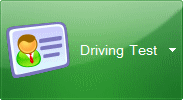Driving and mobile phones: an unsafe mix
Every new and existing drivers should be aware of the changes to rules and regulations for the use of mobile phones in vehicles.
Changes to smart phone rules for probationary drivers and charges toughened for all mobile phone offenses.
Mobile Phone Usage: P1 and P2 vehicle drivers
You are not allowed to use any mobile phone or similar devices while you are driving a car. Even while stationary and the car is on you are still considered driving a car.
Young vehicle drivers are over-represented in severe road crashes.
Smart phone and other mobile gadgets (eg. DVD gamers or tablet computer systems) are major sources of distraction for young motorists, particularly as these motorists are still building driving experience and developing abilities.
From 25 November 2013:
P2 vehicle drivers, in addition to P1 and learner vehicle drivers, have to not make use of a smart phone (hand-held or hands-free) for any function while driving (including while fixed but not parked).
Please note that all probationary drivers who reach 5 demerit points could incur a licence suspension.
All vehicle drivers.
Tougher penalties for unlawful use of smart phones and other technologies that require the use of hands etc.
From 25 November 2013:
All motorists face tougher charges for prohibited use of a smart phone or interacting with other units that have visual displays while driving (e.g. DVD gamers or tablet computer systems) that are not vehicle driver’s aids.
The charges are:
– 4 demerit points.
– $433 fine.
These laws are brought in because it increases the risks of having a vehicle accident(s).
Making use of a mobile phone while driving can be distracting. Research shows that using a hands-free or hand-held mobile phone while driving that may involve manual or visual diversion boosts your chance of being involved in a crash or near crash.
The Law in Austrlia with regards to Smart Phone Usage
It is unlawful in all Australian states and territories to make use of a hand-held smart phone while driving.
This consists of:
- Talking.
- Texting.
- Playing games.
- Taking photos/video.
- Making use of any other function on your phone.
Making use of a hand-held smart phone is likewise illegal when your vehicle is stationary but not parked e.g. when you’re stopped or at a stop light.
Motorists who break this law in Victoria deal with an on-the-spot fine and incur 4 demerit points.
Learners, P1 and P2 drivers are not permitted to make use of any hand-held or hands-free smart phone while driving.
Why it’s hazardous to make use of a mobile phone while driving.
Study reveals that dialing and speaking on a smart phone while driving can cause these:
Slower reactions.
You usually respond slower when making use of a smart phone, especially when you’re deep in discussion. You might take longer to respond to traffic signals or entirely miss them.
Riskier choice making.
Choosing when it is safe to turn into traffic is a complex job. Making use of a smart phone while driving affects judgement and concentration and you may fail to choose a safe space. When making a decision to turn across oncoming traffic, you also tend not to consider the environmental conditions such as, when it is raining or the roads are slippery. If you do not make safe turns you could crash.
Slower and less controlled braking.
Throughout a smart phone call your brake reaction time is slower, and you brake with even more force and less control which lead to shorter stopping ranges readily available between yourself and the automobile in front.
Wandering from your lane.
You’re most likely to roam from your lane when you’re utilizing a smart phone, even on a straight road with little traffic.
Not being alert to your environments.
When utilizing a smart phone, you have the tendency to spend less time inspecting your mirrors and what’s going on around you. This influences your ability to negotiate and check traffic securely.
Safe driving tips and the mobile phone.
- Do not make calls in rush hour, bad road conditions or bad weather.
- Never look up contact number.
- When you know you’ll be driving, inform your household and close friends not to call.
- Tell callers you are driving and may need to end the call.
- Take strategy breaks in your trip for making and receiving calls.
- Drive over securely and park to get a call or make one.
- Never send out or review text.
- An android app that’s smart and will help you from using your phone.
- Use voicemail.
A mobile phone can be crucial in an emergency. Stop and park safely where you will not jeopardize other road users if you need to utilize your mobile phone to call for aid.







